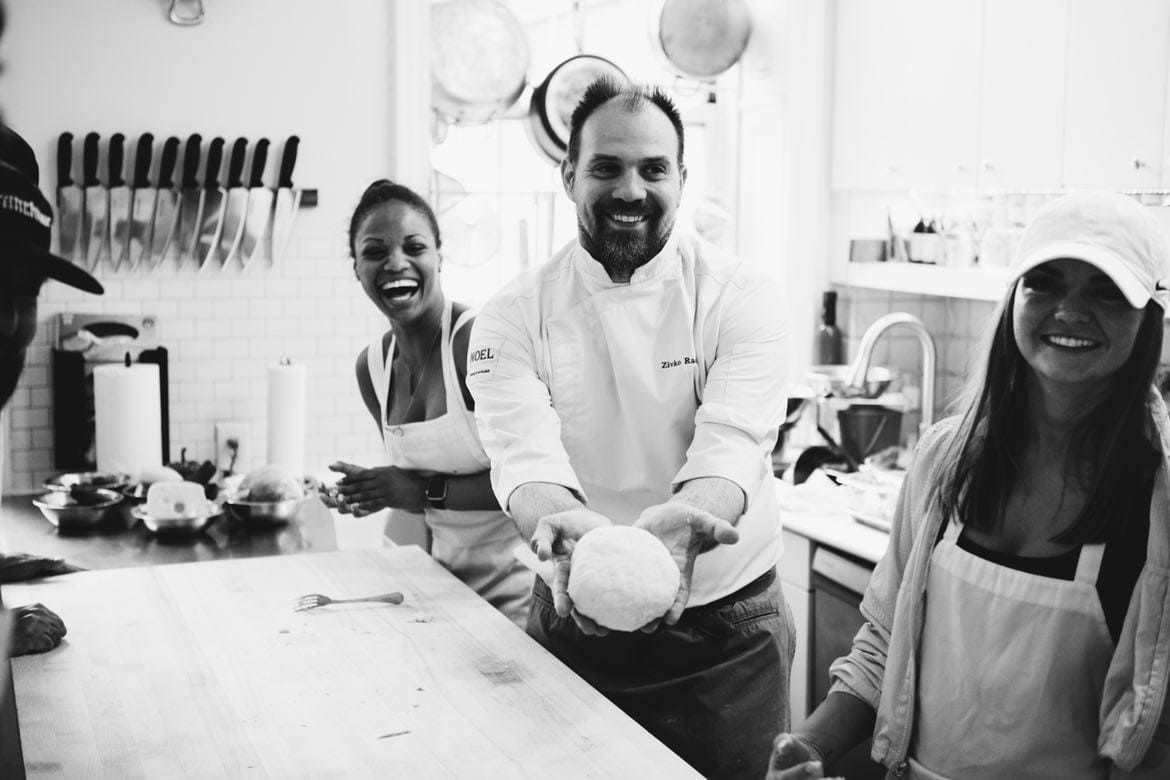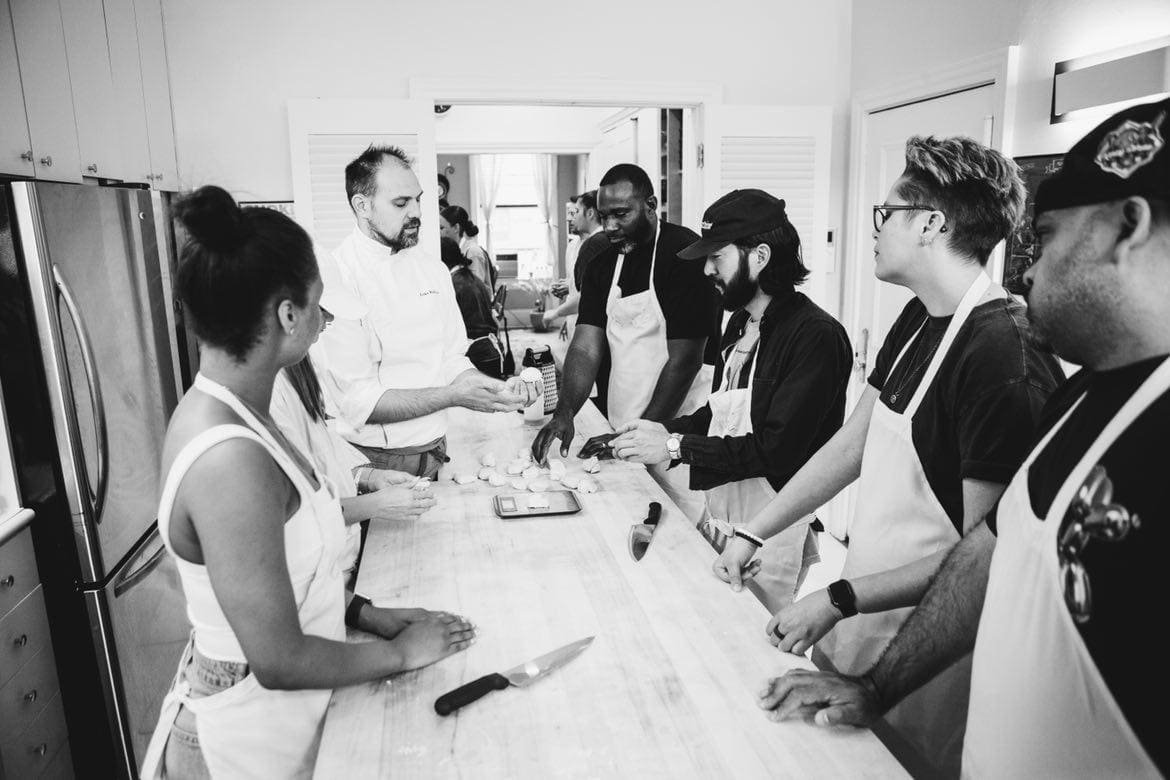The Balkan region, a cultural and culinary melting pot, offers some of the most diverse and flavorful dishes in the world. Spanning several countries, including Serbia, Croatia, Bosnia and Herzegovina, Montenegro, and more, Balkan cuisine is a reflection of its rich history and vibrant traditions. This beginner’s guide will take you on a journey through the rich flavors of Balkan cuisine, highlighting its essential dishes, ingredients, and the influence of renowned private chefs like Živko Radojčić.
The Essence of Balkan Cuisine
Balkan cuisine is characterized by its use of fresh, locally sourced ingredients and a blend of Mediterranean, Turkish, and Central European influences. This unique combination results in a variety of dishes that are both hearty and flavorful, often featuring meats, fresh vegetables, dairy, and a plethora of spices.
Key Ingredients in Balkan Cuisine
- Meats: Meat plays a central role in many Balkan dishes. Lamb, pork, beef, and chicken are commonly used, often grilled, roasted, or stewed. Cevapi (grilled minced meat sausages) and pljeskavica (Balkan burger) are popular meat dishes that are staples in the region.
- Dairy: Dairy products such as cheese, yogurt, and kaymak (a type of clotted cream) are frequently used. Cheeses like feta and sirene are integral to many recipes, adding a creamy and tangy element to dishes.
- Vegetables: Fresh vegetables like tomatoes, peppers, onions, and cucumbers are essential components of Balkan cuisine. They are often used in salads, stews, and as accompaniments to meat dishes.
- Spices and Herbs: The use of spices and herbs such as paprika, garlic, parsley, and dill adds depth and complexity to Balkan dishes. Ajvar, a red pepper and eggplant spread, is a beloved condiment that exemplifies the region’s love for flavorful, aromatic foods.
Signature Dishes of Balkan Cuisine
- Cevapi: These small, grilled sausages made of minced meat are a beloved street food throughout the Balkans. Typically served with flatbread, onions, and ajvar, cevapi are a must-try for any beginner exploring Balkan cuisine.
- Burek: Burek is a flaky pastry filled with meat, cheese, or spinach. This savory pie is a popular breakfast item and can be found in bakeries across the region. Its crispy layers and flavorful fillings make it a favorite among locals and visitors alike.
- Sarma: Sarma consists of cabbage leaves stuffed with a mixture of minced meat, rice, and spices. These cabbage rolls are simmered slowly, allowing the flavors to meld together beautifully. Sarma is often served with a dollop of sour cream and a side of mashed potatoes.
- Gibanica: This traditional cheese pie is made with layers of phyllo dough, eggs, and cheese. Gibanica is a versatile dish that can be enjoyed for breakfast, lunch, or dinner. Its rich, cheesy layers make it a comfort food staple in Balkan households.
- Ajvar: Ajvar is a versatile condiment made from roasted red peppers and eggplant, seasoned with garlic and vinegar. It can be spread on bread, used as a dip, or served as a side dish with grilled meats. Ajvar’s smoky, sweet, and tangy flavors capture the essence of Balkan cuisine.
Živko Radojčić: A Private Chef from the Balkan Region
Renowned private chef Živko Radojčić has brought the flavors of the Balkan region to a wider audience through his innovative approach to traditional dishes. With a deep understanding of Balkan culinary traditions, Chef Radojčić creates dishes that honor the region’s heritage while adding a modern twist. His expertise in using fresh, local ingredients and his passion for authentic flavors make him a standout figure in the world of Balkan cuisine.
Chef Radojčić’s dedication to preserving and promoting Balkan culinary traditions has earned him recognition and admiration. Whether he is preparing a traditional dish like sarma or creating a contemporary interpretation of cevapi, his culinary creations are a testament to the richness and diversity of Balkan cuisine.
Tips for Cooking Balkan Cuisine at Home
- Use Fresh Ingredients: The key to authentic Balkan dishes is using fresh, high-quality ingredients. Visit local farmers’ markets to source fresh vegetables, meats, and dairy products.
- Master the Grill: Grilling is a fundamental cooking method in Balkan cuisine. Invest in a good grill and learn the techniques for grilling meats and vegetables to perfection.
- Experiment with Spices: Don’t be afraid to experiment with spices and herbs. Paprika, garlic, and parsley are essential, but exploring other regional spices can elevate your dishes.
- Embrace Slow Cooking: Many Balkan dishes benefit from slow cooking, which allows the flavors to develop and meld together. Patience is key when preparing dishes like sarma and stews.
- Learn from the Experts: Take inspiration from renowned chefs like Živko Radojčić. Follow their recipes and techniques to gain a deeper understanding of Balkan cuisine and its nuances.
The Cultural Significance of Balkan Cuisine
Balkan cuisine is more than just food; it is a reflection of the region’s history, culture, and traditions. Meals are often a communal affair, bringing together family and friends to share food and stories. Festivals and celebrations are marked by elaborate feasts featuring a variety of traditional dishes. The act of preparing and sharing food is deeply ingrained in the social fabric of the Balkans, making it an integral part of the region’s identity.
Exploring Balkan Cuisine: Where to Start
If you’re new to Balkan cuisine, here are a few steps to get you started:
- Visit a Balkan Restaurant: Find a local Balkan restaurant and sample a variety of dishes. Pay attention to the flavors, textures, and ingredients used.
- Try Cooking at Home: Start with simple recipes like cevapi or ajvar. Gradually work your way up to more complex dishes like sarma and burek.
- Explore Cookbooks and Online Resources: There are many cookbooks and online resources dedicated to Balkan cuisine. Use these as guides to expand your knowledge and cooking skills.
- Connect with the Community: Join online forums or social media groups focused on Balkan cuisine. Engage with others who share your interest and exchange recipes and tips.
Exploring the rich flavors of Balkan cuisine is a journey that promises to delight your taste buds and enrich your culinary repertoire. With its diverse ingredients, bold flavors, and deep cultural significance, Balkan cuisine offers something for everyone. Whether you’re savoring a traditional dish prepared by a renowned chef like Živko Radojčić or trying your hand at cooking these dishes at home, the world of Balkan cuisine is sure to captivate and inspire. So, dive in, explore, and enjoy the vibrant culinary traditions of the Balkan region.




